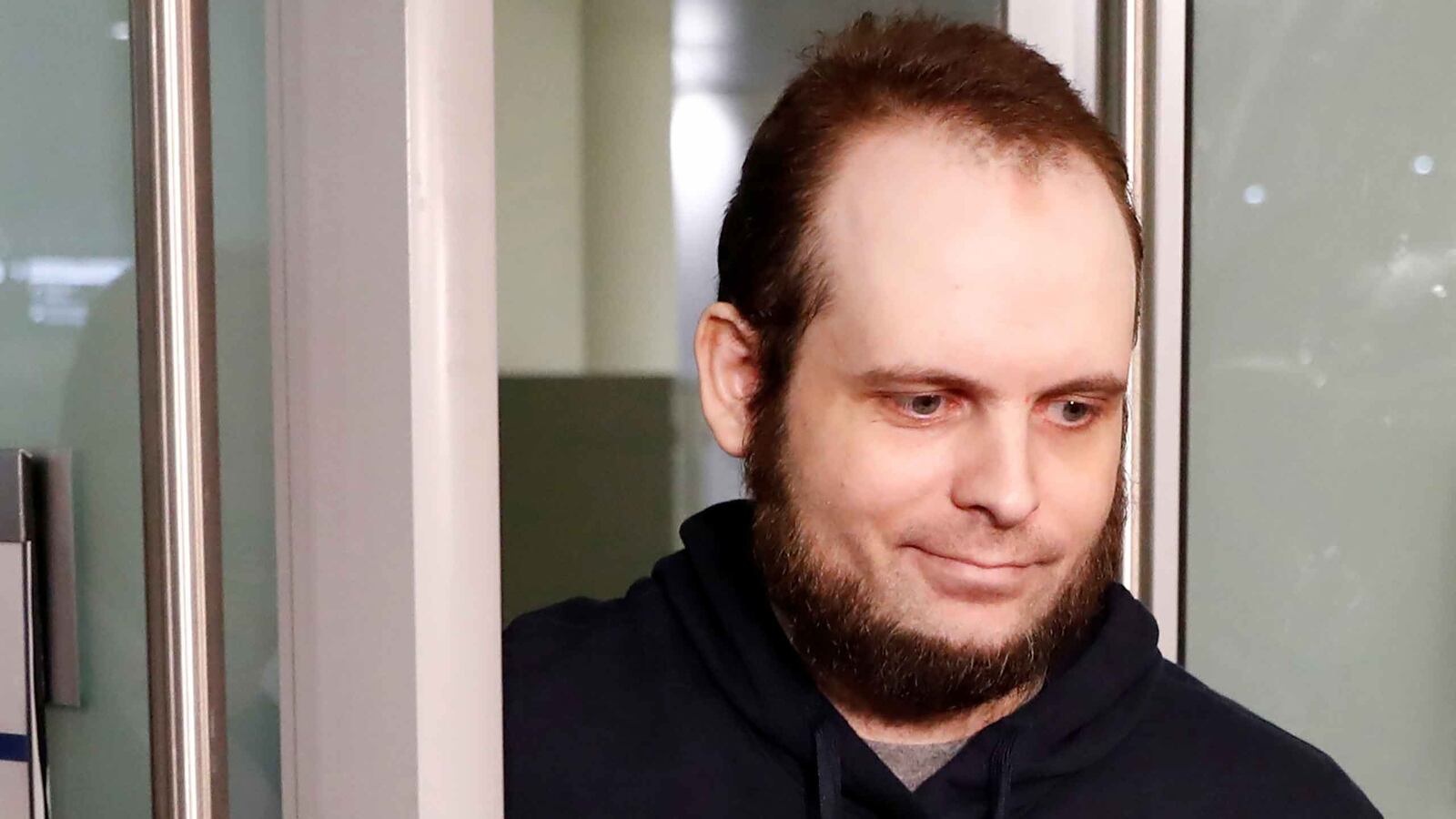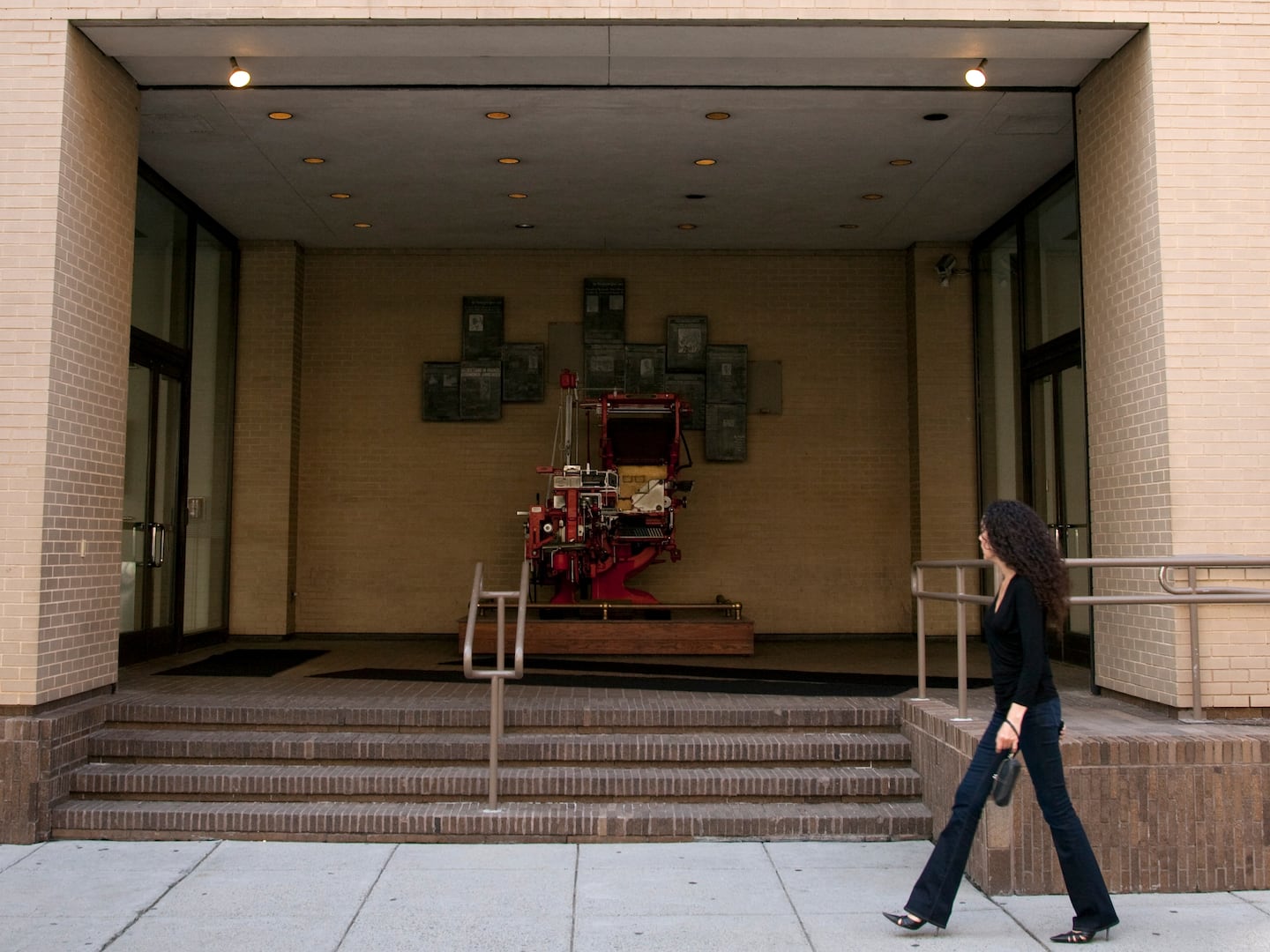Joshua Boyle, a 34-year-old Canadian man rescued last October with his American wife and three children after five years in Taliban captivity, has been arrested by Canadian authorities and charged with 15 criminal offenses, including sexual and physical assault, unlawful confinement, uttering death threats, and misleading police. All these charges relate to alleged behavior since his return from captivity Oct. 14.
A court order in Canada has prohibited publication of information that would identify any of the alleged victims. But it appears likely that Boyle’s alleged behavior is a result of the deep traumas he and his family endured during their hostage taking, some of which is now being re-enacted.
Boyle’s wife, Caitlan Coleman, said in a statement that “ultimately it is the strain and trauma he was forced to endure for so many years and the effects that had on his mental state that is most culpable for this.”
Their family clearly has been through hell. Boyle and Coleman, who was seven months pregnant at the time, were backpacking in Afghanistan’s Wardak province when they were abducted by the Taliban-linked Haqqani network. They were only freed after a shootout between the Pakistani security forces and their captors.
Upon their arrival back in Canada, Boyle spoke to journalists, reading from a statement, and blurting out that their infant daughter had been murdered and his wife raped “as retaliation for my repeated refusal to accept an offer that the criminal miscreants of the Haqqani network had made to me.”
According to Boyle, Coleman’s rape was not undertaken “as a lone action, but by one guard… assisted by the captain of the guard and supervised by the commandant.” Later, Coleman clarified that she was given a massive dose of estrogen against her will, which forced her to abort.
AS HOSTAGES, BOYLE AND COLEMAN were at times kept in cramped quarters as small as a bathtub, were drugged, forced into the trunk of a car to be transported from place to place, and abused. The son that Coleman was carrying when they were abducted was born in captivity. And then they made the decision after the loss of their unborn daughter to conceive and bear more children who were raised with them.
After the family’s release, those three surviving children showed dire signs of trauma, re-experiencing it in nightmares and flashbacks, as Boyle told Michelle Shephard of the Canadian newspaper the Toronto Star in October. He said that their 4-year-old son, Najaeshi Jonah, did not like to close his eyes because it reminded him of waking up at night to see masked men with Kalashnikovs picking him up after his parents already had been taken away while he was sleeping. Ever since, according to Boyle, their son tried to avoid closing his eyes, even to play the childhood game of peek-a-boo, in order to avoid re-experiencing the horror.
Najaeshi Jonah, according to Boyle, was also “terrified to leave the house [in Canada], even just to go on the porch… It’s as though he thinks if he ever exits this magical wonderland it will all end...”
Speaking for himself, Boyle also admitted in an interview he no longer trusted anyone after being held hostage for so long.
Speaking of his 2-year-old middle child, Dhakwoen Noah, Boyle told the Canadian Broadcasting Corporation’s Susan Ormiston that his son was experiencing traumatic flashbacks and is “nearly as distressed as he was in prison, it seems everything reminds him of the horrors of prison; cameras are equated to hostage videos, pens are equated to syringes used to drug his parents with ketamine by the guards, slamming doors is associated with cell searches or worse, it seems his healing process has barely begun—so we pray that God will hasten it.”
Even the Boyles’ months-old infant girl returned from captivity traumatized Boyle wrote in an email to the CBC: “Ma’idah Grace seems scared most of the time, but also to have discovered there are more decent people in the world than she knew; her world until last week consisted of two good brothers and two good parents and about 15 guards [who were sources of] increasing fear to her.”
THAT IT’S NOT ONLY the children who were traumatized, but also Boyle himself—who tried to appear strong and the leader of the family upon their release—now seems all too clear.
In a strange psychological twist, trauma survivors who don’t get the support and help they need to overcome the psychic pain they have endured often repeat their traumas in both symbolic and literal ways. It may be the brain trying to redo the story and get it right, or at a minimum understand, and come to grips with the past psychic pain endured.
Many wondered about the Boyle and Coleman decision to bear more children in captivity, but any psychologist knowing how the case unfolded could see that both spouses were deeply distraught over the forced abortion of their unborn daughter and Coleman’s rape. It is common after a forced or traumatic abortion to get pregnant repeatedly to try to heal that painful scar—a pattern to which the Boyle-Coleman marriage was no exception, even in captivity.
Boyle first appeared in court on New Year’s Day in Ottawa, and again on Wednesday. He will remain in custody at least until Monday. Among the charges issued against him is causing an unidentified person to ingest “a noxious thing, namely Trazodone,” an antidepressant drug.
In this case it seems that traumatic re-enactment is clearly occurring. Joshua Boyle, under deep distress, has now allegedly forced someone to take a serious medication against their will, and has allegedly sexually assaulted someone. He is even accused of keeping someone in unlawful confinement—perhaps repeating what was done to them in his own mixed-up way.
It’s not a small thing for any man, to be responsible for putting his wife in harm’s way and then being unable to save her from rape and a forced abortion. That he was clearly still deeply distressed by both, and that these traumas were first and foremost in his mind, was evident in his statement upon their release when he lashed out at his kidnappers, calling for the Afghan government to track down those members of the Haqqani network who raped his wife, and ordered “the murder of my infant daughter.”
UPON THEIR RELEASE in Pakistan and return to Canada, all of the Coleman/Boyle family were showing signs of distress and may or may not have been receiving—or accepted—the support they needed. Boyle may have rejected psychological assistance, or simply opted for prayers and medications that might ease the pain. But prayers and medications don’t quickly and completely erase traumatic memories that tend to intrude unbidden into one’s consciousness causing rage, terror, withdrawal and alienation—symptoms that trauma survivors need help in learning to manage.
Boyle perhaps too quickly stepped forward and took it upon himself to be the family spokesman talking to the press with whom he unceremoniously announced the family traumas. Meanwhile Caitlan Coleman remained veiled, in the shadows and silent—while her father, Jim Coleman, made angry statements to American media blaming Boyle. “Taking your pregnant wife to a very dangerous place, to me and the kind of person I am, is unconscionable.”
Coleman’s father was not the only one who questioned Coleman’s reasons for being in Afghanistan in the first place. Security and law enforcement also had their lingering questions about whether Boyle had tried to make contact with terrorists in the first place and why Boyle and his wife were in Afghanistan.
Boyle, who is a convert to Islam, was married for a time to Zaynab Khadr, one of the elder sisters of Omar Khadr, the Pakistani-Canadian who as a 15-year-old was arrested and charged with killing an American soldier in Afghanistan. Boyle, among others, was outraged that Khadr spent ten years in Guantanamo despite claiming his confession to the killing had been coerced.
The patriarch of the Khadr family was killed in 2003, along with al Qaeda and Taliban members, in a shootout with Pakistani security forces near the Afghanistan border. Omar Khadr, who was repatriated to Canada in 2012, subsequently won a settlement of 10.5 million Canadian dollars ($8.4 million) and a government apology from the Canadian government for breaching his constitutional rights.
Security experts wondered if Boyle’s zeal for Islam and his anger over the West’s action toward individuals like Omar Khadr were part of his reason for going to Afghanistan. Was he looking for contacts that ultimately disappointed him by taking him and his family hostage and demanding he join them?
Boyle’s associations with the family led some U.S. intelligence officials to speculate that his visit to Afghanistan may have been part of a larger effort to link up with Taliban-affiliated militants. “I can’t say that [he was ever al Qaeda],” one former intelligence official told The Independent in the U.K. “He was never a fighter on the battlefield. But my belief is that he clearly was interested in getting into it.”
These questions still remain unanswered, but certainly would cause Boyle distress.
Within a week of their release in October 2017, Boyle, who tried to present himself as the strong protector, reportedly was rushed to the hospital with an unspecified ailment. Boyle’s family made a statement at the time that both their son and his wife were “deeply traumatized and Josh is not of clear thought as he speaks at times.”
This week Caitlan Coleman defended Boyle, without offering specifics, in her statement to the Toronto Star where she blamed the trauma they had been through. “Obviously, he is responsible for his own actions,” Coleman wrote, “but it is with compassion and forgiveness that I say I hope help and healing can be found for him. As to the rest of us, myself and the children, we are healthy and holding up as well as we can.” Boyle’s defense lawyer, Eric Granger, wrote in an e-mail to the Star, “Mr. Boyle is a young man who we all know has been through a lot. He has never been in trouble with the law.”
Indeed, and now that we see evidence that the deep traumas of their five-year-ordeal are being replayed, it is time for Caitlan, Joshua, and their children to get the psychological, spiritual, medical, and community support they need. Only then can they rage and grieve and finally come to terms with the losses harsh captivity has left imprinted on their bodies, minds, and souls.
Anne Speckhard, Ph.D., is an adjunct associate professor of psychiatry at Georgetown University School of Medicine and Director of the International Center for the Study of Violent Extremism (ICSVE). She has interviewed over 500 terrorists, their family members and supporters in various parts of the world.






